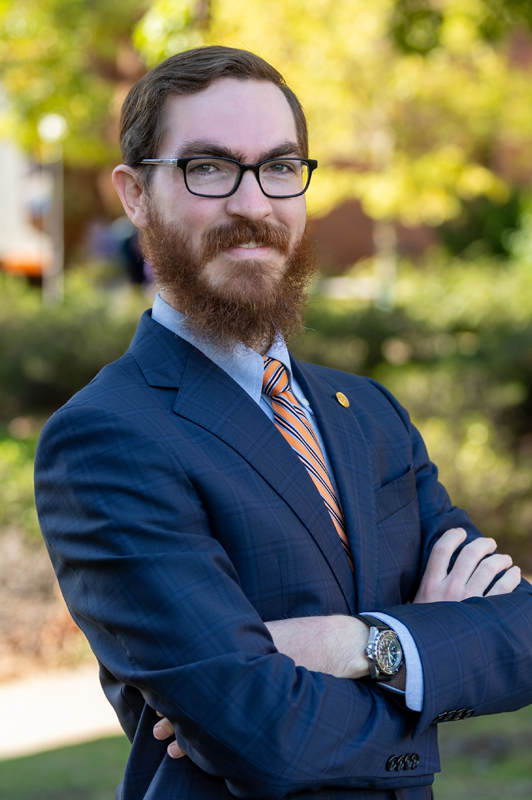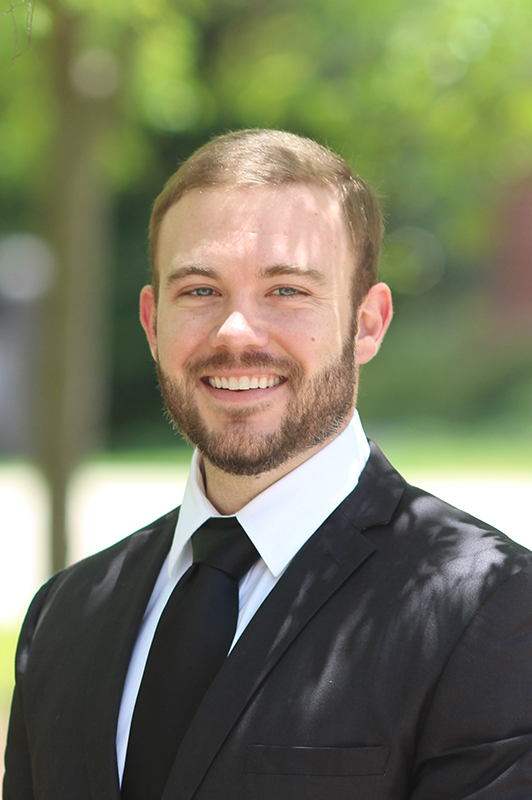SURE program provides undergraduate students with a taste of graduate school
Published: Jul 23, 2024 7:00 AM
By Joe McAdory
Months from earning a bachelor’s degree, Drew Grose hadn’t considered pursuing education at the graduate school level. He is now.
Auburn University’s Summer Undergraduate Research Experience (SURE) provided students with a glimpse of graduate school life – including research and professional development – through a 10-week program hosted by the college’s Department of Electrical and Computer Engineering.
“Before this project, I had never done research at all, so this allowed me to set up an experiment and determine the end goal,” said Grose, a senior in electrical and computer engineering who was paired with Assistant Professor Clint Snider on the project, “Integrating SolidWorks with MATLAB Electromagnetic Simulations.” “I wasn’t considering it (graduate school) at all, but now I think I would like to pursue a PhD because I really enjoyed the research topic.”
Nineteen undergraduate students — 13 from Auburn and six from peer universities across the Southeastern U.S. — took part in the inaugural program, which paired students, freshmen through rising seniors, with 10 faculty researchers and current Auburn University graduate students.
“The students met with the faculty at the beginning of the program and developed research projects that the students can work on and take ownership of,” said Hunter Burch, assistant professor in electrical and computer engineering, who also serves as the department’s graduate program co-officer. “We teach them (undergraduates) the fundamentals in class, but they don't always see how to apply it.
“They learned how to formulate and solve problems. They learned to try something new, see if it worked and how to communicate the results.”
Kyle Hakel, a rising sophomore in electrical and computer engineering, said research has allowed him to understand that scientists don’t always have to know the answer – but must continue to work hard to figure the answer out.
“I’m glad to have had the opportunity to be a part of research that can have a positive impact on the world,” said Hakel, who paired with McWane Endowed Professor Robert Dean on the presentation, “Nitrate Sensor Interface Board and Relaxation Oscillator Circuit.” “I’ve always enjoyed the process of learning and I always want to learn more, so the research is a good way to do it.”
Snider, who co-organized the program with Burch, said it was important that students were shown “what they could be missing.”
“And not just our students, but undergraduate students from other universities who might consider coming to Auburn for graduate school,” he said. “Some don't have graduate programs, but now they know where one is, and now they're going to go back home and tell their friends what they did all summer. It's outreach to people who didn’t have this exposure and didn’t know what the graduate experience is like. With SURE, we can let them get a taste.”
Elizabeth Dawe, a rising sophomore in computer science and software engineering, said the experience was “really cool.”
“A lot of the research can go over our heads, but the faculty we worked with made it a much simpler experience,” said Dawe, who studied “Enhanced 3D Surface Mapping of Reflective Objects Using Structured Light and Polarization Techniques.” “It was great to connect with professors and older students in electrical and computer engineering. This was an experience I couldn’t have gotten anywhere else.”
The program culminated in a special two-hour poster presentation on Friday, July 19, where each participant had the opportunity to showcase and explain their research before faculty, peers and judges for cash prizes.
Winners from the competition, all in electrical and computer engineering, included:
* Nicholas Stephenson (first place), who worked with Dean to develop sensors to detect nitrogen in waterways from fertilizer runoff.
* Samir Kris (second place), who worked with Professor Mark Halpin to analyze the high-frequency performance of resistor networks for power systems.
* Spencer Plep (third place), who worked with Burch to model the self-interference of propagating very low frequency radio waves in the earth-ionosphere waveguide.
Media Contact: , jem0040@auburn.edu, 334.844.3447
Nineteen undergraduate students made research poster presentations before peers, faculty and judges on Friday, July 19.



